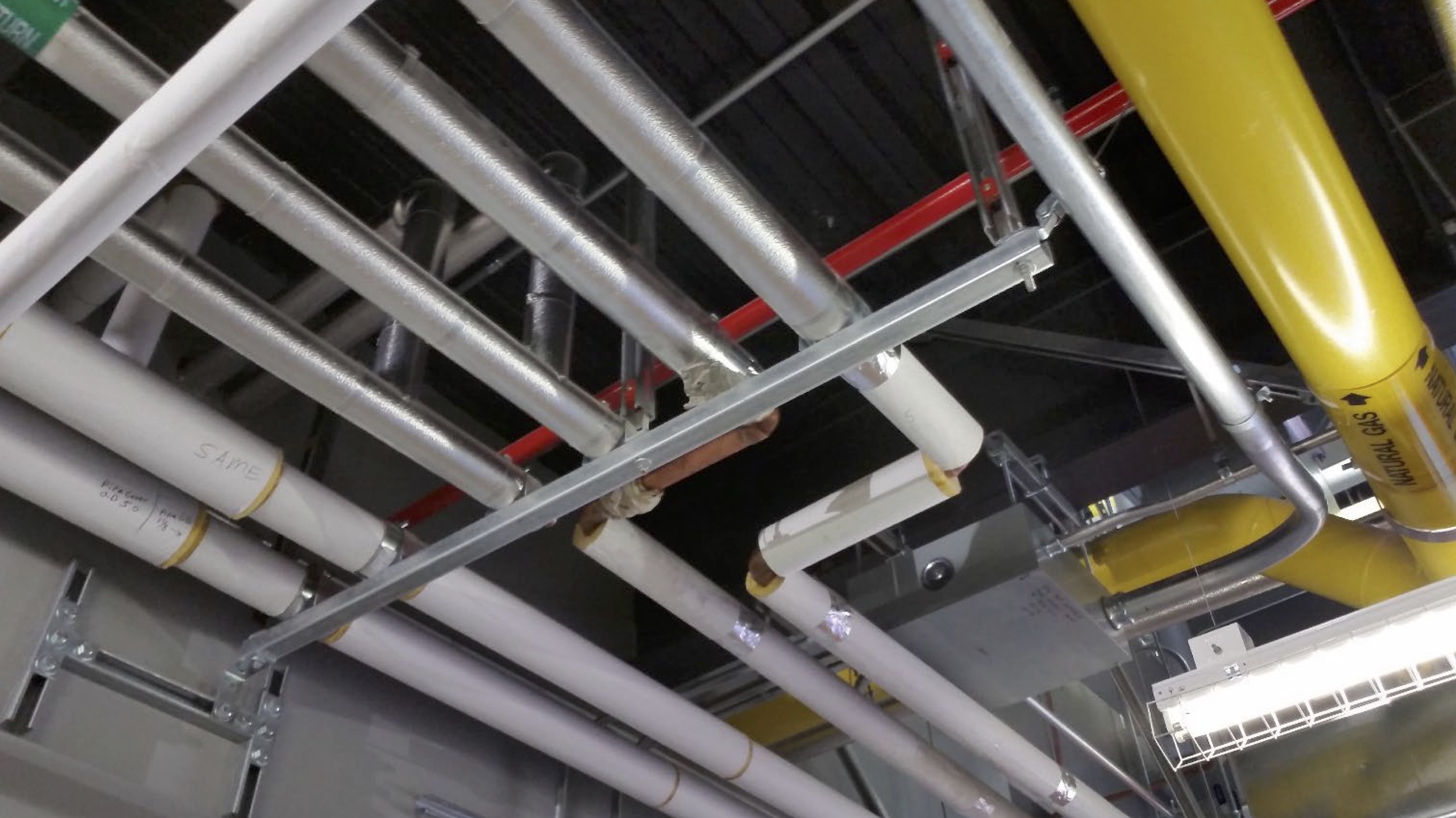Using IAPMO’s Water Demand Calculator tool can result in energy, carbon, and water savings as compared to using traditional plumbing specification methods in plumbing codes, according to a study by Arup.
Arup compared the Water Demand Calculator with the Hunter’s Curve method that has been a long-time standard in both the Uniform Plumbing Code (UPC) and the International Plumbing Code (IPC) for sizing domestic hot water systems. The study examined four residential-use cases, including a single-family home, and six-unit, 45-unit, and high-rise multifamily residences.
Water savings ranged from 450 gallons to 71,000 gallons annually depending on the building size. High-rise residential buildings were found to have operational carbon savings between 73% and 84% for booster pumps and embodied carbon savings ranging from 20% to 41%.
IAPMO’s Water Demand Calculator predicts peak water demand for single-family and multifamily dwellings, removing the need for assigning fixture units to plumbing fixtures. Instead, the IAPMO tool calculates peak demand using algorithms based on building size.
Related Stories
| Sep 28, 2022
New digital platform to foster construction supply chains free of forced labor
Design for Freedom by Grace Farms and the U.S. Coalition on Sustainability formed a partnership to advance shared goals regarding sustainable and ethical building material supply chains that are free of forced labor.
| Sep 27, 2022
New Buildings Institute released the Existing Building Decarbonization Code
New Buildings Institute (NBI) has released the Existing Building Decarbonization Code.
| Sep 22, 2022
Gainesville, Fla., ordinance requires Home Energy Score during rental inspections
The city of Gainesville, Florida was recently recognized by the U.S. Dept. of Energy for an adopted ordinance that requires rental housing to receive a Home Energy Score during rental inspections.
| Sep 19, 2022
New York City construction site inspections, enforcement found ‘inadequate’
A new report by the New York State Comptroller found that New York City construction site inspections and regulation enforcement need improvement.
| Sep 16, 2022
Fairfax County, Va., considers impactful code change to reduce flood risk
Fairfax County, Va., in the Washington, D.C., metro region is considering a major code change to reduce the risk from floods.
| Sep 13, 2022
California building codes now allow high-rise mass-timber buildings
California recently enacted new building codes that allow for high-rise mass-timber buildings to be constructed in the state.
| Sep 8, 2022
U.S. construction costs expected to rise 14% year over year by close of 2022
Coldwell Banker Richard Ellis (CBRE) is forecasting a 14.1% year-on-year increase in U.S. construction costs by the close of 2022.
| Sep 2, 2022
Converting office buildings to apartments is cheaper, greener than building new
Converting office buildings to apartments is cheaper and greener than tearing down old office properties and building new residential buildings.
| Aug 29, 2022
Montana becomes first U.S. state to approve 3D printing in construction
Montana is the first U.S. state to give broad regulatory approval for 3D printing in building construction.
| Aug 26, 2022
Idaho Building Code Board considers gutting large part of state energy code
Idaho Building Code Board considers gutting large part of state energy code.

















